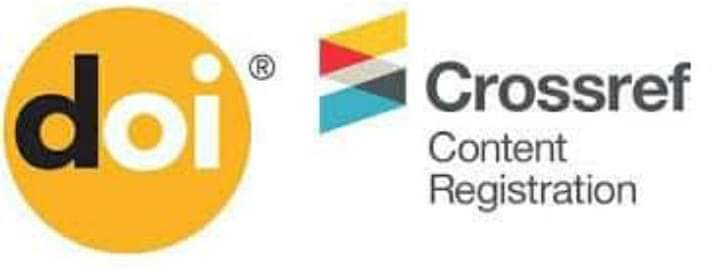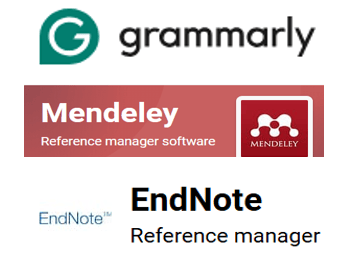Spectrophotometric Determination of 5-Hydroxymethylfurfural in Honey Samples from Al-Marj City in Libya Using White Method
DOI:
https://doi.org/10.37375/sjfssu.v4i1.2572الكلمات المفتاحية:
Honey, 5-hydroxymethylfurfural (HMF), spectroscopic determination, White method.الملخص
5-hydroxymethylfurfural (HMF) content was determined as a parameter for honey quality for three Sidr honey samples from Al-Marj city in Libya. In this study, the spectrophotometric quantification of HMF in honey was performed using White method which is one of the most accurate and recommended official methods. The honey samples were obtained from three different farms that distribute honey to most of the retail centers across the city. The aim of this study was to determine HMF concentration in samples from this geographical region to provide some data for future studies. HMF can be considered one of the most important parameters for honey testing and its concentration can predict if heat was used in any stage of honey production. All samples showed normal HMF concentrations indicating good honey quality, good storage conditions, and no possible adulteration nor heating. The preparation of a full report for the honey quality in this region is recommended.
المراجع
Abraham, K., Gürtler, R., Berg, K., Heinemeyer, G., Lampen, A., & Appel, K. E. (2011). Toxicology and risk assessment of 5-hydroxymethylfurfural in food. Molecular Nutrition Food Research, 55(5), 667–678. https://doi.org/10.1002/mnfr.201000564.
Bogdanov, S. (2009). Harmonised methods of the European Honey Commission. Retrieved from: http://www.ihc-platform.net/ihcmethods2009.pdf.
Codex Alimentarius Commission. Standard for honey (CXS 12-1981). Report of the forty-fifth session of the Codex Committee on sugar, amended in 2019, 2022. Retrieved from: https://www.fao.org/3/i0842e/i0842e20.pdf
Capuano, E., & Fogliano, V. (2011). Acrylamide and 5-hydroxymethylfurfural (HMF): A review on metabolism, toxicity, occurrence in food a mitigation strategies. LWT– Food Science and Technology, 44(4), 793–810. https://doi.org/10.1016/j.lwt.2010.11.002.
Cristina, D. A., Seiquer, I., Haro, A., Castellano, R., & Navarro, M. P. (2010). Development of the Maillard reaction in foods cooked by different techniques: Intake of Maillard-derived compounds. Food Chemistry, 122 (1),145-153.
Janzowski, C., Glaab, V., Samimi, E., Schlatter, J., & Eisenbrand, G. (2000). 5-Hydroxymethylfurfural: Assessment of mutagenicity, DNA-damaging potential and reactivity towards cellular glutathione. Food and Chemical Toxicology, 38(9), 801–809. https://doi.org/10.1016/S0278-6915(00)00070-3.
Maeda, I. C., Sampaio, A. N. C. E., Flores Caron, E. F., Nardy, J. F., Oliveira, S. C., Pereira, J. G., & Martins, O. A. (2023). Spectrophotometry of Winkler and White's official methods for the determination of hydroxymethylfurfural in bee honey. Brazilian Journal of Food Technology, 26. https://doi.org/10.1590/1981-6723.13322
Veríssimo, M. I. S., Gamelas, J. A. F., Evtuguin, D. V., Gomes, M. T. S. R. Determination of 5-hydroxymethylfurfural in honey, using headspace-solid-phase microextraction coupled with a polyoxometalate-coated piezoelectric quartz crystal. (2017). Food Chemistry, 220, 420-426. https://doi.org/10.1016/j.foodchem.2016.09.204
Okibe, F. G., Shallangwa, G.A. & Usman, I. (2020). Modification of White Method for Quantitative Evaluation of 5-hydroxymethylfurfural in Honey. Communication in Physical Sciences, 5(1), 34-41.
Perchloric acid. SDS (2023). Sigma Aldrich [online: 311421]. Retrieved from: https://www.sigmaaldrich.com/LY/en/sds/aldrich/311421?userType=undefined (accessed January 31, 2024).
Rada-Mendoza, M. M., Olano, A., & Villamiel, M. (2002). Determination of hydroxymethylfurfural in commercial jams and in fruit-based infant foods. Food Chemistry, 79(4). 513-516. https://doi.org/10.1016/S0308-8146(02)00217-0.
Rada-Mendoza, M. M., Sanz, M. L., Olano, A., & Villamiel, M. (2004). Formation of hydroxymethylfurfural and furosine during the storage of jams and fruit-based infant foods. Food Chemistry, 85(4). 605-609. https://doi.org/10.1016/j.foodchem.2003.07.002.
Sakač, N., & Sak-Bosnar, M. (2012). A rapid method for the determination of honey diastase activity. Talanta, 93, 135–138. https://doi.org/10.1016/j.talanta.2012.01.063
Silva, P. M., Gauche, C., Gonzaga, L. V., & Costa, A. C. O. (2016). Honey: Chemical composition, stability and authenticity. Food Chemistry, 196(1), 309–323. https://doi.org/10.1016/j.foodchem.2015.09.051.
Teixidó, E., Santos, F. J., Puignou, L., & Galcetan, M. T. (2006). Analysis of 5-hydroxymethylfurfural in food by gas chromatography–mass spectrometry. Journal of Chromatography A, 1135, 85–90. https://doi.org/10.1016/j.chroma.2006.09.023.
Tosun, M. (2013). Detection of adulteration in honey samples added various sugar syrups with 13C/12C isotope ratio analysis method. Food Chemistry, 138(2-3), 1629–1632. https://doi.org/10.1016/j.foodchem.2012.11.068.
UNICEF. (2023). Devastating floods in Libya: Two months after massive storm, families are still reeling. Retrieved from: https://www.unicef.org/emergencies/devastating-flooding-libya
White, J. W. (1979). Spectrophotometric Method for Hydroxymethylfurfural in Honey. Journal of the Association of Official Analytical Chemists, 62, 509.
White, J. W. (1994). The Role of HMF and Diastase Assays in Honey Quality Evaluation, Bee World, 75(3), 104- 117. https://doi.org/10.1080/0005772X.1994.11099213.
Zappala, M., Fallico, B., Arena, E., & Verzera, A. (2005). Methods for the determination of HMF in honey: a comparison. Food Control, 16, 273–277. https://doi.org/10.1016/j.foodcont.2004.03.006
Żak, N., & Wilczyńska, A. (2023). The Importance of Testing the Quality and Authenticity of Food Products: The Example of Honey. Foods, 12(17), 3210. Retrieved from: https://doi.org/10.3390/foods12173210.
التنزيلات
منشور
إصدار
القسم
الرخصة
الحقوق الفكرية (c) 2024 المجلة العلمية لكلية العلوم

هذا العمل مرخص بموجب Creative Commons Attribution 4.0 International License.














